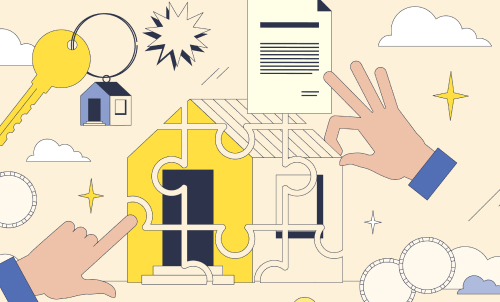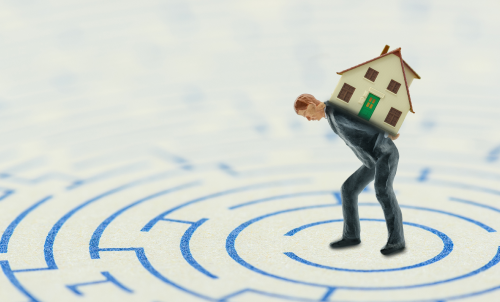
Buying a second home can be an attractive option for various reasons, such as having a holiday retreat, an investment property or a house closer to work. This article provides an overview of buying a second home, including types of mortgages, potential benefits and drawbacks, and the main steps involved.
Second Home Mortgage
A second home mortgage is designed for individuals purchasing an additional property that is not their primary residence. This type of mortgage is similar to a standard residential mortgage, but often comes with stricter lending criteria and higher interest rates. Some points to consider include:
- Deposit Requirements: Second home mortgages typically require a higher deposit, often at least 25%. This reflects the increased risk perceived by lenders.
- Interest Rates: The interest rates on second home mortgages are usually higher than primary residence mortgages, again due to the perceived additional risk by lenders.
- Affordability Assessment: Lenders will thoroughly assess your credit status and overall financial position, including your income and debt payments, to determine if you can manage the additional financial burden comfortably. They will probably want to see that your total monthly debt payments do not exceed 40% of your gross monthly income and that your total borrowing does not exceed c. 4.5 times your annual income.
Buy-to-Let (BTL) Mortgage
If you plan to rent out your second home, a BTL mortgage would be the appropriate one to apply for. Key features of buy-to-let mortgages include:
- Higher Deposits: Typically, BTL mortgages require a minimum deposit of 25% or greater.
- Income Assessment: Lenders will assess the potential monthly rental income to see if it can cover about 125% - 145% of monthly mortgage payments. In addition, they will expect the landlord to a personal annual income of at least £25,000 and a strong credit position.
- Higher Interest Rates: Interest rates on buy-to-let mortgages are generally higher than those on standard residential mortgages due to the perceived risk involved.
Holiday Let Mortgage
For short-term holiday rentals, a holiday-let mortgage will be required. These mortgages cater to properties with frequent tenant turnover and seasonal income variations. Lenders will assess the potential for seasonal rental income in the location where you are thinking of making the purchase. Similar to buy-to-let mortgages, holiday-let mortgages often require higher deposits and have higher interest rates.
Benefits of Buying a Second Home
1. Investment Potential
- Property Appreciation: An increase in the value of the property over time can provide a good return on investment if you choose to sell in the future. Capital gains tax should be considered.
- Rental Income: Renting out the second home can also generate an income stream, helping to cover at least some of the mortgage payments and maintenance costs.
2. Personal Use
- Holiday Retreat: Owning a holiday home in a favourite location can enhance your lifestyle, providing a convenient and comfortable retreat.
- Convenience: A second home can offer convenience, such as a property closer to work or family.
3. Future Retirement Home
- Planning Ahead: A second home can serve as a future retirement residence, allowing you to plan for retirement in a familiar and desirable location.
4. Family Use
- Shared Family Resource: A second home can be used by extended family, providing a shared space for family gatherings and holidays.
Drawbacks of Buying a Second Home
1. Financial Burden
- Costs: Purchasing and maintaining a second home can be expensive, including higher mortgage rates and maintenance costs.
- Initial Deposit: Second homes often require a larger deposit, typically around 25% or greater.
2. Tax Implications
- Stamp Duty: Buying a second home incurs a stamp duty surcharge on top of the standard rates for residential properties.
- Capital Gains Tax: Selling a second home at a profit will attract capital gains tax, based on the value increase and your tax bracket.
3. Management Challenges
- Maintenance: Maintaining a second property requires effort and resources, and perhaps even more so if it is located far away from your primary residence.
- Rental Management: If you rent out the property, dealing with tenants and managing the property can be demanding, unless you engage a property management company, which adds to the costs.
4. Market Risks
- Property Value Fluctuations: Real estate markets can be volatile, over time. The value of your second home could decrease due to market conditions, leading to a potential financial loss.
- Rental Market Dependence: If you rely on rental income, fluctuating rental markets can impact your financial stability, especially during economic downturns or off-peak seasons.
Main Steps involved in Buying a Second Home
- Assess Your Financial Situation
When considering purchasing a second home, it is important to evaluate carefully what you can afford. This involves taking into account the deposit required, monthly mortgage payments and any additional costs such as maintenance.
- Find the Right Property
It is important to consider the location that best fits your needs, whether it is for personal use, rental income or future retirement. You should also decide on the type of property that aligns with your plans, whether it is a city apartment, a countryside cottage or a coastal holiday home.
- Conduct Due Diligence
It is important to have the property surveyed to check for any structural issues and to ensure that it is valued properly. Additionally, it is crucial to ensure that all legal aspects are fully addressed, including the property title and any local regulations.
- Costs
As well as the purchase price, and legal and valuation costs, factor in the 3% stamp duty surcharge for second homes. Additionally, take into account council taxes for each location. Also, consider all ongoing expenses, such as mortgage payments, and maintenance, insurance and property management costs. Do not forget the implications of capital gains tax when you sell.
- Choose the Right Mortgage
It is important to do the research and compares different offers. A large deposit and strong credit score can potentially help obtain better rates. Consulting a mortgage broker can be beneficial, as they can help you find the best deals and also guide you through the application process.
- Complete the purchase
You will need to appoint a solicitor to complete the conveyancing process, including searches, initial exchange of contracts, completion and land registry entries.
FAQs:
Q. What is a Second Home Mortgage and How Does It Differ from a Primary Residence Mortgage?
A. A second home mortgage is a loan specifically designed for purchasing an additional property that is not your primary residence. These mortgages often require a higher deposit, usually at least 25% of the property’s value, and have higher interest rates compared to primary residence mortgages. Lenders assess affordability based on your credit status and overall financial situation, including income and debt payments. Buy-to-let and holiday-let mortgages also take into account rental income.
Q. Can You Have Two Mortgages?
A. Yes, you can have two mortgages at the same time. This situation is common for those buying a second home or an investment property. To qualify for a second mortgage, you must demonstrate to lenders that you can afford the repayments on both properties. Lenders will evaluate your income, debt-to-income ratio and credit score to ensure you are not over-leveraged. Buy-to-let and holiday-let mortgages also take into account rental income.
Q. What are the Stamp Duty Land Tax (SDLT) Implications when Buying a Second Home?
A. When buying a second home, you are subject to an additional 3% Stamp Duty Land Tax (SDLT) surcharge on top of the standard rates for residential properties. It is important to factor this additional cost into your budget when planning your purchase.
Q. What Are the Benefits and Drawbacks of Buying a Second Home?
Benefits:
- Investment Potential: Property appreciation and rental income can provide a good return on investment.
- Personal Enjoyment: Owning a holiday retreat or a home closer to work can enhance your lifestyle.
- Future Retirement Home: A second home can serve as a future retirement residence.
- Family Use: A shared space for family gatherings and holidays.
Drawbacks:
- Financial Burden: Higher costs, including deposits, mortgage payments, maintenance costs and taxes.
- Management Challenges: Maintenance and tenancy management can be time-consuming and costly.
- Market Risks: Property value fluctuations and rental market dependence can impact financial stability.
Q. What Are the Steps Involved in Buying a Second Home?
A. Steps
- Assess Your Financial Situation: Evaluate affordability and ensure you can manage the financial burden of a second home, including the deposit, mortgage payments and maintenance costs.
- Find the Right Property: Choose a location and property type that meets your needs.
- Conduct Due Diligence: Have the property surveyed and ensure that all legal aspects are fully covered.
- Costs: Factor in the purchase price, stamp duty surcharges, legal costs, valuation costs, deposit requirements, mortgage payments, maintenance, insurance and property management costs, and future capital gains tax.
- Choose the Right Mortgage: Compare different mortgage offers and choose the right one. A mortgage advisor can be helpful.
- Complete the Purchase: You will need to appoint a solicitor to complete the conveyancing process.
References:
Second Home Mortgage Calculator | Online Mortgage Advisor | Published Jul 24






.jpg)



